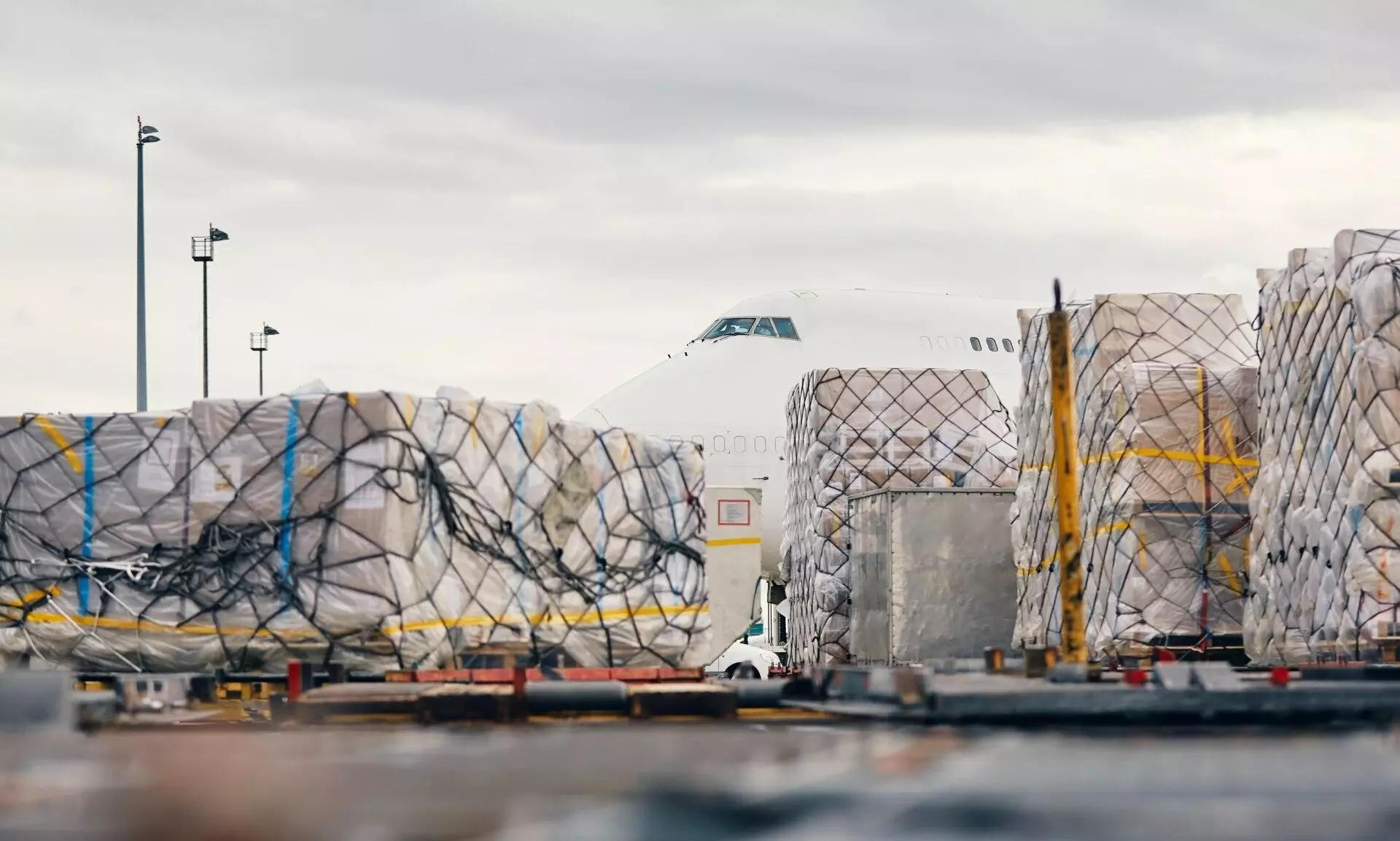
Customs demands accurate, digital, parcel-level e-commerce data

Customs crackdowns in the US and Europe on Chinese e-commerce shipments will not stop the trade but will make it evolve to be more transparent. Digitalisation is the way forward as customs demand more data from shippers.
In an interesting turn of events, WorldACD, in its June 2024 Monthly Air Cargo Trends Special update reported that the growth of general cargo air freight tonnage is outpacing that of special cargo products so far in 2024, reversing a trend in recent years in which demand from air cargo shipments requiring special handling and shipping has broadly outperformed general cargo.
The report pointed out that one factor for the strong growth in general cargo since the start of last autumn is cross-border e-commerce traffic. “E-commerce cargo often flies in bulk as general cargo rather than within a special product category," it reads.
Also, Xeneta in its June 2024 communication noted that China’s cargo market to North America continued to gain from the resilient US economy and its strong e-commerce demand.
“At the end of 2023, we saw the dramatic impact China’s e-commerce behemoths had on the air cargo market. Everyone is now waiting anxiously to see what happens in the upcoming peak season,” it reads.
However, it has also pointed out that the big question for the air cargo industry is what happens following the U.S. crackdown on e-commerce shipments out of China.
Despite huge volumes of e-commerce shipments moving from China to the US and Europe by air, one factor that makes the air cargo industry anxious is how customs regulations in both these markets are evolving.
For instance, US Customs & Border Protection intensified its crackdown on Chinese e-commerce shipments in May 2024 by suspending multiple customs brokers from participating in the Entry Type 86 Test, a voluntary US Customs programme allowing participants to electronically import small shipments valued up to $800 without paying duties and taxes.
“The customs officer in Belgium is reading the customs code differently than the officer in Amsterdam. And then the officer in Germany who is very strict is also reading it differently.”
Murat Odabas, CB Customs Broker
Things are not different in Europe. Ecommerce Europe, the EU not-for-profit association representing companies selling goods and services online to consumers in Europe, issued an open letter to enforcement authorities stressing the urgent need to ensure a level playing field and effective enforcement of EU law towards all e-commerce players active in the EU Single Market.
It reads, “Companies that are already based in the EU are subject to many regulations and compliance costs tend to be high as rules are generally complex and often not fully harmonised at EU level. Therefore, it has become challenging for EU-based players to compete on an equal level with these new players from outside the EU who are targeting EU consumers. Most importantly, the commercial practices used by these players raise questions about their compliance with the Union legislation, especially in the areas of consumer protection, product safety, counterfeiting, data protection, privacy, environmental and taxation legislation.”
Even in the European Union where the customs code is the same across the region, the treatment of e-commerce shipments differs and shippers from China have been adjusting themselves according to the customs regulations and enforcements. Simultaneously, as the e-commerce boom is on, airlines and airports are lining up to grab their share.
For instance, Wake, general manager of the Shanghai branch of Guangzhou Hayonex Logistics (HYL Logistics), a Guangzhou-based logistics company offering forwarding, customs and integrated solutions, informed that they are sending their e-commerce shipments to Liege or Amsterdam where the turnaround time is lower compared to Germany.
“Even for e-commerce shipments destined to Germany and Frankfurt, we move them through The Netherlands or Belgium, where customs clearance is quick, and then ship it to Germany.”
In fact, the German cargo airline Lufthansa Cargo, along with its subsidiaries CB Customs Broker and heyworld, organised a workshop in Shanghai during the recent air cargo China 2024 to convince Chinese e-commerce shippers to send their cargo to its hub in Frankfurt Airport.
Murat Odabas, managing director of CB Customs Broker, the customs agency and wholly-owned subsidiary of Lufthansa Cargo, agreed that the barrier was high at Frankfurt Airport and Germany.
“The customs officer in Belgium is reading the customs code differently than the officer in Amsterdam. And then the officer in Germany who is very strict is also reading it differently. It is all the same code.”
Odabas noted that they got in touch with the customs officials in Germany and informed them about the advantages Liege and Amsterdam enjoy.
“We can do same-day clearance at Frankfurt Airport now.”
“But the challenge that we have in China is the trust pattern. Because for the last five to 10 years, e-commerce flows have been through Amsterdam and Liege,” he added.
Odabas informed that the e-commerce parcels handled at Frankfurt airport per month have gone up from 10,000 in May 2023 to 2 million in May 2024.
To make the customs procedure smooth, he encouraged the Chinese e-commerce shippers to integrate their APIs and provide data that is accurate and precise from a parcel level.
“The customs clearance of e-commerce is done on a parcel level and not on a mass shipment level,” he said.
Alvin Tay, Atlas Air
One problem for e-commerce when it comes to physical control of shipments is that it needs much more time. The shipment count is so much bigger compared to general cargo.
Talking about these challenges, Michael Mottl, head of customs & documentation cargo services, Vienna Airport, says, “The volume is the same, but you can have 20,000 singular shipments in one ULD or under the same airway bill number identified by different HS codes which takes more time to get inspected.”
“In general cargo, one shipment will have one company and airway bill with two or three tariff numbers. If you have an e-commerce shipment, one shipment will have 40,000 companies and 40,000 products in one airway bill number. Customs have to be done for all 40,000 items. That's the problem.”
Talking about regulatory issues, Mottl noted that some EU countries do not have the focus of e-commerce shipments which makes it easier for airports in those countries to process e-commerce cargo at this moment.
“This will change very fast. Because the European Union has the same law. The same rules should apply to other countries,” he said.
Talking about Vienna Airport and Austria, he said, “Last year, we started with a very strict rule. And now we're going downwards to make it easier and faster for e-commerce as well. And other countries, which started at the low level, have to improve.”
He also mentioned the importance of getting the data right. “We are working with the airlines and shippers to get the data correct and consistent. The customs make spot checks and compare them with the data. If the data is correct, then we get less control in future. If the data is not correct during the inspection, the inspection will go up because there's more risk,” he said.
Alvin Tay, SVP sales & marketing Asia Pacific, Atlas Air, also emphasised the importance of getting the data right as he spoke about the transpacific air cargo trade during a conference organised by The STAT Trade Times in Shanghai at air cargo China 2024.
“US customs is not putting a stop to e-commerce. They're saying the volume is so fast. They have like 2 million parcels coming in every day. How do we manage the data? So they suspended the brokerage licence for a few of these brokers for a few months. And the whole idea is just to get more useful and accurate data,” he said.
Another airport that is trying to get a greater share of e-commerce volume is the Glasgow Prestwick Airport in Scotland.
Prestwick Airport was selected by Royal Mail in June 2024 to be its international e-commerce hub in the United Kingdom (UK). Prestwick was selected due to the numerous benefits it offers over alternative airports throughout the UK including offering up to half of the cost of landing at some UK hubs.
Prestwick recently announced a £2.2 million investment in cargo equipment and has taken delivery of two extra-wide high loaders with 20 and 35-tonne capacity, respectively, a heavy-duty pushback tractor capable of handling any aircraft type, 12 new dollies and a new Rapiscan X-ray machine with 7 mm steel penetration.
Peter Barry, vice president business development, Glasgow Prestwick Airport, said, “We are establishing a proper product that can handle e-commerce with a dedicated warehouse. We'll be using the distribution centres, postcodes, last mile reach, systems and technology of Royal Mail.”
He also spoke about the geographical advantage of the airport to serve the e-commerce parcels to the UK and Ireland. “The vast majority of e-commerce comes into London, Birmingham, Manchester, East Midlands at the moment. However, the e-commerce distribution centres of the big e-commerce companies are in the Midlands.”
As e-commerce is spreading far and wide with more airports and airlines grabbing their share of the pie, customs in the Western world is pushing e-commerce to be more transparent, accurate and precise about the parcels they are moving through the air. And, as they put it, the way forward is to digitalise.
This was originally published in the July 2024 issue of The STAT Trade Times.

